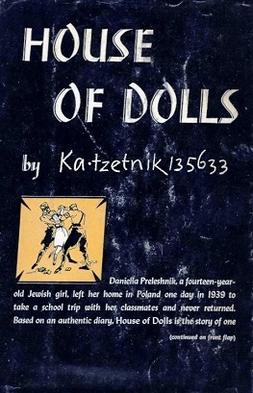Joy Division was an English post-punk band, active 1976 to 1980, which took its name from the novel House of Dolls.
Joy Division may also refer to:
Dark Star or Darkstar may refer to:

Joy Division were an English rock band formed in Salford in 1976. The group consisted of vocalist, guitarist and lyricist Ian Curtis, guitarist/keyboardist Bernard Sumner, bassist Peter Hook and drummer Stephen Morris.
Resistance may refer to:

A brothel, bordello, ranch, or whorehouse is a place where people engage in sexual activity with prostitutes. However, for legal or cultural reasons, establishments often describe themselves as massage parlors, bars, strip clubs, body rub parlours, studios, or by some other description. Sex work in a brothel is considered safer than street prostitution.
Zone or The Zone may refer to:

The Reeperbahn is a street and entertainment district in Hamburg's St. Pauli district, one of the two centres of Hamburg's nightlife and also the city's major red-light district. In German, it is also nicknamed die sündigste Meile and Kiez. The Reeperbahn Festival is among the largest club festivals.

House of Dolls is a 1953 novella by Ka-tzetnik 135633. The novella describes "Joy Divisions", which were groups of Jewish women in the concentration camps during World War II who were kept for the sexual pleasure of Nazi soldiers.
Exile is either an entity who is, or the state of being, away from one's home while being explicitly refused permission to return.
Pathfinder may refer to:
Defiance may refer to:
Emma may refer to:
Lucy is a feminine given name.

Nazi exploitation is a subgenre of exploitation film and sexploitation film that involves Nazis committing sex crimes, often as camp or prison overseers during World War II. Most follow the women in prison formula, only relocated to a concentration camp, extermination camp, or Nazi brothel, and with an added emphasis on sadism, gore, and degradation. The most infamous and influential title is a Canadian production, Ilsa, She Wolf of the SS (1974). Its surprise success and that of Salon Kitty and The Night Porter led European filmmakers, mostly in Italy, to produce similar films, with just over a dozen being released over the next few years. Globally exported to both cinema and VHS, the films were critically attacked and heavily censored, and the sub-genre all but vanished by the end of the seventies.
The Battle of Stalingrad (1942–1943), a battle on the Eastern Front of World War II, often regarded as the single largest and bloodiest battle in the history of warfare, and one of the most decisive battles of World War II, has inspired a number of media works.

Le Vernet Internment Camp, or Camp Vernet, was a concentration camp in Le Vernet, Ariège, near Pamiers, in the French Pyrenees. Built in 1918 as a barracks but after WWI used as an internment camp for prisoners of war. From February 1939 to June 1944, it was used as an internment camp, first for Republican refugees fleeing Spain after Franco's victory in the Spanish Civil War, in particular some 12,000 refugees, including soldiers of Durruti Column and others of the International Brigades, under the legitimate French government and then, as of May-June 1940, under the Vichy government after German occupation during the Second World War. Starting in 1940, apart from the prisoners coming from the Spanish Civil War, the Vichy government used it to house prisoners considered suspect or dangerous to the government, including members of the resistance and opponents of the Hitler, Mussolini and Pétain regimes. From 1942 until June 1944, it was used as a holding camp for Jewish families awaiting deportation to other camps. The last transport out of the camp in June 1944 took the prisoners to Dachau concentration camp.
Into the Storm may refer to:

Yehiel De-Nur, also known by his pen name Ka-Tsetnik 135633, born Yehiel Feiner, was a Jewish writer and Holocaust survivor, whose books were inspired by his time as a prisoner in the Auschwitz concentration camp. His work, written in Hebrew.

Military brothels were set up by Nazi Germany during World War II throughout much of occupied Europe for the use of Wehrmacht and SS soldiers. These brothels were generally new creations, but in the west, they were sometimes expansions of pre-existing brothels and other buildings. Until 1942, there were around 500 military brothels of this kind in German-occupied Europe, serving travelling soldiers and those withdrawn from the front. According to records, a minimum of 34,140 European women were forced to serve as prostitutes during the German occupation of their own countries along with female prisoners of concentration camp brothels. In many cases in Eastern Europe, teenage girls and women were kidnapped on the streets of occupied cities during German military and police round ups called łapanka in Polish or rafle in French.

In World War II, Nazi Germany established brothels in the concentration camps to increase productivity among inmates, although these institutions were used mostly by Kapos, "prisoner functionaries" and the criminal element, because regular inmates, penniless and emaciated, were usually too debilitated and wary of exposure to Schutzstaffel (SS) schemes. In the end, the camp brothels did not produce any noticeable increase in the prisoners' productivity levels, but instead, created a market for coupons among the camp VIPs.
Reginald Stephen Traviss is an English film director and writer. He came to public attention in the UK in 2006 with the theatrical release of his debut feature film Joy Division which starred Ed Stoppard, Bernard Hill, Tom Schilling, Bernadette Heerwagen and Ricci Harnett. He followed up his World War Two drama with Psychosis (2010), a psychological thriller that starred Charisma Carpenter, Ricci Harnett and Justin Hawkins. Traviss directed Screwed, a prison drama based on the 2008 book Screwed: The Truth About Life as a Prison Officer, by a former prison guard writing under the pseudonym Ronnie Thompson. The film, released theatrically in the UK in June 2011, starred Noel Clarke, James D'Arcy, Frank Harper and Kate Magowan.